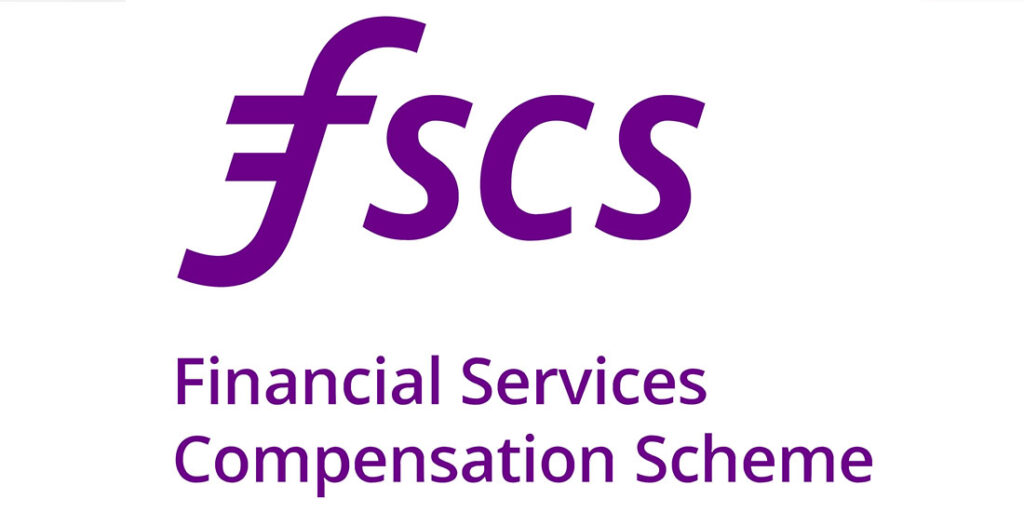Kuflink Reports £50 Million in Bridge & Development Loans
Peer to peer lender Kuflink has reported surpassing £50 million worth of bridging and development loans. Kuflink is a UK based P2P lender serving the property market.
How risky is innovative finance?
Today, innovative finance individual savings accounts (IF Isas) offer anything from 4 to 12 per cent interest. That’s a very good incentive to buy one, particularly in this low-interest rate environment.
New Rules for P2P Platforms: Key Points from the FCA Report
The Financial Conduct Authority has this week released new rules for peer-to-peer platforms, which “focus particularly on credit risk assessment, risk management and fair valuation practices”. These rules are being enforced to help protect investors, especially those with less experience, and all platforms have until 9th December 2019 to implement them.
So what will they mean for investors? We’ve summarised some of the key points below, and you can read the full paper by clicking here.
Why are these new regulations coming in?
As with any investment, it is essential that peer-to-peer investors understand what they are putting their money into, and the fact that they could lose all or part of their investment.
Chris Woolard, Executive Director of Strategy and Competition at the FCA, said that these new rules were aimed at “enhancing protection for investors while allowing them to take up innovative investment opportunities…for P2P to continue to evolve sustainably, it’s vital that investors receive the right level of protection”.
The FCA wants to ensure that investors “have the necessary information about a platform’s services and charges to help them make informed decisions” and “have clear and accurate information about the investment risk of a product to make suitable investment choices in line with their risk tolerance”.
Introducing ‘appropriateness tests’ and investing caps
One of the most prominent changes is placing a limit on how much non-advised retail investors (i.e. those with limited investment experience and not receiving services from a financial adviser) can put in. These consumers will now have to self-certify that they will not invest more than 10% of their investible assets.
This certification will form part of a wider ‘appropriateness’ test, which will ensure that investors have at least a basic knowledge of the industry. Whilst the exact contents of the multiple-choice test have not been dictated, recommendations include:
- The understanding that P2P investments are not comparable with a savings account
- That there are no guaranteed returns and your capital is at risk
- That you may be unable to exit a P2P loan before maturity, even where a platform operates a secondary market
- The role of the platform and the scope of its services
New restrictions on how platforms market their services
From December onwards, platforms will only be allowed to send direct offer financial promotions (anything that invites people to invest) to investors that meet at least one of the following criteria:
- are classed as either a sophisticated or high net worth investor
- are classed as a restricted investor, meaning they have agreed not to invest more than 10% of their investable assets
- have confirmed before the promotion is made that they will receive regulated investment advice
Sharing wind-down plans with investors
P2P platforms are already required to have a wind-down procedure in place however, going forward, they will have to disclose a summary of this procedure before any investment is made. Platforms will be required to show that, even if they stopped providing a peer-to-peer service, suitable arrangements are in place to manage all existing loans and investments they’ve provided.
Will I notice any changes before 9th December 2019?
Platforms that offer home finance products are required to adopt some new rules with immediate effect, although other P2P platforms such as ourselves have 6 months to update their practices. As this is a final deadline, some changes are likely to be actioned before that point and some platforms may already be compliant with aspects of the new guidelines.
Do I need to do anything?
Investors don’t need to take any action, but it’s always a good idea to keep up to date with any news that could affect your investments. If you have any questions, we recommend reading the full FCA guidebook here or seeking regulated, independent financial advice.
Former Barclaycard director joins Kuflink
Kuflink has appointed Tim Spurr, former Barclaycard financial director, as chief financial officer and director of Kuflink Group.
A Techie in Number 10?
One of the favourites to be the next Prime Minister is tech enthusiast Matt Hancock. The MP for West Suffolk is the current health secretary and beforehand served in the equivalent role at Digital, Sport, Media and Culture. In both roles he has expressed a desire for the government to make more use out of technological developments.
In various speeches, Mr Hancock has called for ‘a culture of innovation’. Whilst working as the digital secretary, he oversaw the creation of the London Office for Rapid Cybersecurity Advancement (LORCA) which houses over seventy cyber security companies and focusses on ‘developing the cyber security technology of tomorrow’. In a speech at Tech Nation in 2018, Mr Hancock championed crowdfunding methods saying that the UK had ‘real strength’ in that area and his passion for technology continued when he moved into the role as health secretary.
Mr Hancock has announced that the use of pagers will be banned in the NHS, quite a big step when you consider 2017 research indicted that the NHS owned 10% of the world’s pagers. As an alternative, a ‘WhatsApp’ style communication method was piloted in an NHS trust in Mr Hancock’s own constituency. It’s not only pagers that are getting the chop, Mr Hancock has banned the NHS from purchasing fax machines with a view of phasing out the technology by April 2020 and making email the norm going forward.
The would-be leader has also formed the Healthtech Advisory Board where key NHS figures and tech industry stalwarts meet to help with creating policies with technological advancement in mind. Mr Hancock is already an influential figure, but should he get the top job, his enthusiasm for technology will influence more than just the NHS and influence every government department.
Meet the Team: Marketing
Left to Right: Dave (In-House Designer), Liv (Marketing Executive), Tom (Head of Digital), Henry (Communications Assistant), Annie (Senior Communications Executive) & Ritish (Business Analyst)
Tell us about your role at Kuflink
Tom, Head of Digital: I’m responsible for managing the team and developing strategies across all our marketing activity – I support and motivate everyone however I can.
Liv, Marketing Executive: I put the stands and materials together for our trade shows and exhibitions throughout the year, as well as preparing all new investments and uploading them to the platform.
Dave, In-House Designer: I produce our graphics, which are part of almost everything we do – digital advertising, print advertising and web design mostly.
Ritish, Business Analyst: I’m primarily a Business Analyst, monitoring our activities, but I also run some of our digital accounts such as Google and Bing.
Annie, Senior Communications Executive: My role is pretty varied as I work across PR and marketing – I write material for our investors and for industry publications.
Henry, Communications Assistant: I work closely with Annie to create lots of different written content, from press releases to blogs and emails.
What is a typical day in the marketing department?
Tom: There is no typical day in the marketing department! It’s such a fast-paced environment, one day we could be working on a TV ad and the next we’ll be writing a report on trends in the property market.
Liv: I’m usually busy making sure all our new investments are ready to go, which involves speaking to all the different teams and getting everything reviewed.
Annie: The industry is constantly changing, so our marketing reflects that. We keep on top of all the latest news and pass that knowledge on to investors. For example, when buy-to-let regulation changed, we stopped what we were doing and put a blog together on that topic.
What is your favourite project you have worked on at Kuflink?
Tom: We’re going to be launching a brand-new website soon, which has been a great chance to fine-tune our branding and hopefully reach more investors than ever.
Dave: As a designer, seeing my work as the finished article is always great, particularly if it’s for something a lot of people will see like our tv ad.
Liv: For one of our exhibitions last year, our stand was a fully stocked pub! It was great fun meeting everyone and we got to make a lot of new contacts.
What do you enjoy about working at Kuflink?
Tom: It’s fun to be involved in an ambitious company that is always looking forward.
Liv: There’s lots of support here to further your career – I started elsewhere in the company and moved over to marketing nearly two years ago.
Annie: Kuflink is a really fun place to work, but aside from that, I have learnt so much about finance and property which has been genuinely interesting and useful.
Henry: I only joined last month so I’m still settling in, but everyone’s been friendly and supportive.
Dave: The team are really open to ideas, so I get to play around with designs and concepts as much as I want to.
Ritish: It’s rewarding to help the team see what’s working and optimize our campaigns- and the hot chocolate from the coffee machine is amazing!



